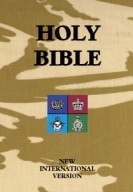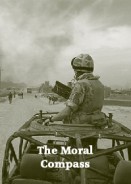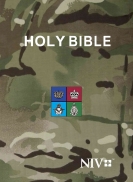Judges 5:18
For the Bible Society at Aldgate
22 September 1782
Judges 5:18
|
|
Zebulun and Naphtali were a people that jeoparded their lives unto the death in the high places of the field. |
|
War with all its calamities, is the effect of sin. Relief and deliverance from those calamities are to be ascribed to the will and the mercy of God. He ruleth over the nations of the earth. He is the God of battles, the God of victory, and to him it is equally easy to save by many or by few. His favoured people Israel were often brought low by their iniquities, but when they were humbled, he pitied and delivered them. Sometimes he wrought salvation by his own Almighty arm. When he destroyed Pharaoh and his army at the Red Sea and the army of Sennacherib - the people had only to stand still and see the mighty works of the Lord. At other times he commanded and animated them to attempt their own deliverance, but the success was from himself. We have an account of Barak being commissioned for such a service, when Israel had groaned under the yoke of Midian. The tribes were all called upon, the army raised - the battle fought, the victory complete - their liberty restored, their enemies destroyed. This chapter is a hymn of praise to God who made them conquerors - the indolence of some of the tribes is reproved, the zeal and activity of others commended. And particular notice is taken of Z. and N. - who at such a time cheerfully hazarded their lives in the common cause. I would accommodate this passage to the present occasion. |
|
 |
A noble design has been formed to furnish the navy and army with Bibles;
it has been graciously supported, encouraged by the approbation of many of our officers, and received with thankfulness by many of our sailors and soldiers. But the object of this benevolence is great and extensive - farther assistance still is and will be wanted. I am appointed to recommend it today to this respectable auditory - and I recommend it under this consideration - that is, in behalf of those who hazard their lives for us, even unto death, to defend us from our enemies.
|
|
I shall propose it in a twofold point of: |
|
1. |
As it respects us: |
|
|
who under God owe our safety to the exertions of those who make jeopardy of their lives for us. |
|
2. |
As it more immediately respects them: |
|
|
who put their lives to this hazard for our defence. |
|
1. |
As it respects us |
|
|
With respect to the first point - I address: |
|
|
1.1 |
Your sensibility |
|
|
|
Perhaps you will allow me to say your gratitude. Perhaps what is entreated of you as a favour, might be justly claimed as a debt. In a state of war at home we enjoy hitherto the same the security, the blessings as in a time of profound peace. We read indeed of abounding desolations and calamities which have overwhelmed multitudes of our fellow creatures, but we only hear of them, and therefore, alas, are too little affected by them and therefore perhaps too faintly consider how much we are indebted to the bravery and the sufferings of those who hazard their lives for us. Of the hardships and dangers peculiar to what we call the military line I am no competent judge - of those to which our seamen in the King's service are exposed I know something more than I could have learnt merely from description. Both the one and the other are called to wake when we sleep, to hunger and thirst, while we live in plenty, are separated from their families, relatives and homes, many of them to return no more. They endure hardships of which few of us can properly conceive, from the changes of climates and seasons - etc.; for us they receive wounds not to be healed without much pain and length of time, and often wounds which admit no cure. When a war is ended, how many do we see deeply scarred or grievously marred, and see them perhaps reduced to beg their bread, being disabled from procuring it by honest industry. But a large number never return to tell their mournful tale. We only [hear of] the event from the cries and distresses of their widows and orphans. have not those who thus venture for us, a claim upon our sensibility and gratitude. But I forebear - methinks read in your countenances that I need not enlarge upon this topic. All I ask for them is that they may be furnished. |
|
|
1.2 |
Your interest |
|
|
|
This war is complicated. Never before perhaps was the nation opposed by so powerful a combination of enemies - we feel the disparity and it is no dishonour in our situation to feel it. Except the Lord of hosts be on our side, there is but little hope of our standing long in so unequal a contest. [We] are brought to a crisis, and our possessions, our civil and religious liberties are all eminently at stake. Next to the prayers of those who fear God, our grand resource is in our fleets and armies. How desirable is it that the men to whom we commit our cause, should be such as know to whom they should look for success. But how generally do wickedness and profanity prevail in our fleets and armies - I deal not in invectives. It is a fact too plain to require either proof or illustration. They are not in themselves worse than others, but their disadvantages are peculiarly great. From the means of grace, from opportunities of instruction, from the benefit of good example, they are necessarily precluded. It is no wonder therefore that profaness, and every kind of evil abound amongst them. But we may well wonder that the Lord of hosts should so often give us victory, by such instruments, as who far from improving his blessing, or rendering him praise, disown his authority and in a manner defy him to his face. Could this insensibility and presumption be removed, we might hope, that one might chase a thousand and 5 put ten thousand to flight - and that though millions were engaged against us, yet the Lord of hosts would be for us, and preserve us. As things stand at present they who really believe there is a God that governs the earth, can place but small dependence upon our warlike preparations - when he is so little acknowledged either by those who plan our enterprises, or by those who undertake to carry them into execution. The most probable means (by the Divine blessing) of obviating this evil, is that which I am to recommend to you. Our mariners, our soldiers, are for the most part great transgressors, because they are grossly ignorant. They know not what they do. Put the Bible into their hands, and who can tell but it may be in many instances the happy means of teaching them their sin, their dangers, their need of salvation and the worth of a Saviour. This would habituate them to obedience and subordination, more than the strictest discipline without it. This will inspire them with a courage founded in principle, this would give strength to their arms and edge to their weapons, when lawfully called forth to plead the cause of their country. |
|
2. |
As it more immediately respects them |
|
|
2.1 |
[Their future] |
|
|
|
But methinks I have a still more important and prevailing argument to excite your benevolence to provide Bibles for those who make jeopardy of their lives, in fighting our battles - if we consider their situation as it respects themselves. They hazard their lives, they rush into danger - they fight, they die - cut off in a moment - they launch into an invisible, an unchangeable state - who can estimate the consequence? Blessed are the dead that die in the Lord, though they should fall by sword, pestilence or famine - they are blessed. The righteous hath hope in his death, but hope to deserve the name must be built by faith on the Word of God. How shall they believe in him of whom they have not heard? Indeed they often hear of the name of Jesus - but it is only when they hear it blasphemed. If they knew the dignity of his person, the greatness of his love to sinners, the nature and design of his sufferings - if they knew the greatness of his power and the riches of his grace, surely they would blaspheme him no longer. |
|
 |
|
|
|
Furnish them with the means of this knowledge. Procure them Bibles, and accompany your gift with your prayers. Whenever you succeed you will be instrumental in saving a soul from death. This is an endeavour worthy of your ambition. To save a soul from death is of more real importance than to save a kingdom or many kingdoms from temporal ruin. Can you estimate the value of a soul? It is beyond the reach of natural members to express - it consists chiefly in two things - an immense capacity - an endless duration. Capable of possessing the power of God, or of being filled with an exquisite sense of his wrath, and that forever. It is not only the bodily life, but the precious soul is exposed to jeopardy in the high places of war. What shall it profit a man if he gain the whole world and lose his own soul? What shall he give in exchange for his soul? |
|
 |
Footnote:
The Bible Society, founded in 1780, now exists as the Naval, Military and Airforce Bible Society.
(images courtesy of this society)
|